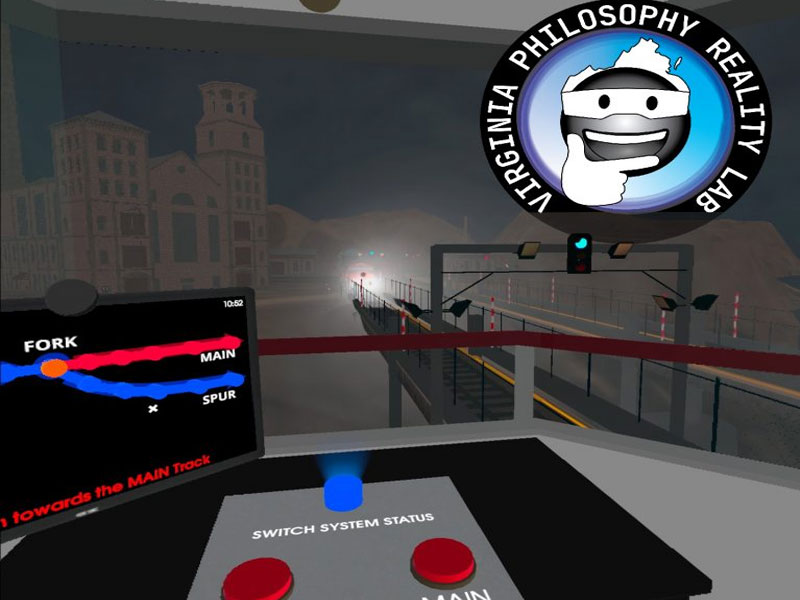Hi-tech smart glasses connecting rural and remote aged care residents to clinicians
SOURCE: HTTPS://HELLOCARE.COM.AU/
NOV 20, 2023
Philosophy and extended reality technologies
SOURCE: DAILYNOUS.COM
SEP 15, 2021

What can extended reality (XR) technologies, such as virtual reality (VR) and augmented reality (AR) bring to the study of philosophy?
One research group, the Virginia Philosophy Reality Lab (VPRL) at Old Dominion University is working on this question, developing tools for it and planning events to share what they’ve learned. Andrew Kissel is a philosopher involved in the project, and I asked him to share some information about it. He writes:
The Virginia Philosophy Reality Lab is an interdisciplinary coalition of educators and researchers at Old Dominion University in Norfolk, Virginia, that explores philosophical issues through extended reality (XR) technologies. XR technologies provide novel and immersive ways to experience time-tested philosophical ideas. With the help of an NEH Digital Humanities Advancement Grant, the VPRL is currently developing virtual reality modules on the basis of philosophical thought experiments to be used as educational tools in the classroom and research tools for experimental studies. Our first module is a VR version of the trolley problem, which is the basis for an empirical study currently in progress.
Core to our mission is the idea that the affordances provided by XR technologies should be as accessible as possible. This mission informs our design decisions, as well as their open approach to software development and research sharing. In December, the VPRL will host a workshop on how other philosophers, educators, and researchers, can begin to develop their own approach to doing philosophy in XR, using some of the tools developed by the VPRL.
If you’re doing philosophy-related work with XR technologies, or philosophical work about XR technologies, let us know about it in the comments.
And if you have an Oculus VR headset (and are at least 18 years old), you can take part in the module Dr. Kissel mentioned above. Data collected from responses to the scenarios presented in it, he says, “will inform new behavioral and social models of moral decision making” and may “help improve decision making modeling for diverse applications from self-driving cars to robotics and AI networks.” The module takes about 15 minutes. There are some more details about it here and you can try it here.
LATEST NEWS
Augmented Reality
Hi-tech smart glasses connecting rural and remote aged care residents to clinicians
NOV 20, 2023
WHAT'S TRENDING


Data Science
5 Imaginative Data Science Projects That Can Make Your Portfolio Stand Out
OCT 05, 2022

SOURCE: HTTPS://HELLOCARE.COM.AU/
NOV 20, 2023
SOURCE: HTTPS://WWW.EASTMOJO.COM/
OCT 31, 2023
SOURCE: HTTPS://WWW.ZDNET.COM/
SEP 27, 2023
SOURCE: HTTPS://WWW.AUSTRALIANJEWISHNEWS.COM/
SEP 28, 2023
SOURCE: HTTPS://WWW.SCIENCEDAILY.COM/
AUG 09, 2023
SOURCE: HTTPS://MOBIDEV.BIZ/BLOG/
JUL 11, 2023